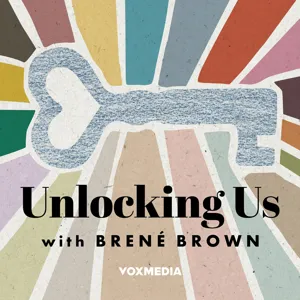Podcast Summary
Gain self-awareness for lasting change: Meditation and AG1 supplements can help us improve self-awareness, leading to better understanding of ourselves and lasting changes in our lives.
Self-awareness is crucial for creating lasting change in our lives. According to Robert Greene, we often lack self-awareness and are not fully aware of who we are or what makes us tick. This lack of awareness can negatively impact all areas of our life. Meditation can help us gain self-awareness by allowing us to introspect and understand our thoughts and emotions better. AG1 supplements, which contain vitamins, minerals, probiotics, prebiotics, and digestive enzymes, can support overall health and well-being, giving us the energy and focus we need to practice self-awareness and make lasting changes. By investing in both our physical health and self-awareness, we can live more fulfilling and meaningful lives.
Understanding Negative Qualities for Personal Growth: Acknowledging self-absorbed tendencies through meditation leads to self-awareness and positive change
Acknowledging and understanding our own negative qualities and tendencies is a necessary step towards personal growth and empathy towards others. This process can be uncomfortable and unpleasant, but it's essential to become aware of our self-absorbed nature in order to make meaningful change. Meditation is a practice that can help cultivate self-awareness and bring attention to the present moment, allowing us to better understand our thoughts and emotions. By being present and honest with ourselves, we can begin to break free from negative cycles and make positive improvements in our lives.
Exploring the depths of self through meditation: Meditation helps us confront doubts, anxieties, and petty thoughts, leading to greater self-awareness and personal growth. Regular solitude and reflection are essential for this process.
Developing deep self-awareness through practices like meditation is essential for personal growth and effective interactions with others. During meditation, we confront our doubts, anxieties, and petty thoughts, leading to a greater understanding of ourselves. This heightened sensitivity and awareness enable us to identify and address our own shortcomings, allowing us to improve ourselves and engage with the world on a higher level. Regular solitude and intentional reflection are crucial for cultivating this self-awareness. By honestly confronting our inner selves, we can better understand our emotions, strengths, and weaknesses, ultimately leading to a more fulfilling and authentic life.
Understanding our emotions and mental state for better interactions: Self-awareness, a key aspect of emotional intelligence, helps us manage emotions, respond instead of react, and maintain calmness in challenging situations, leading to improved relationships and overall well-being.
Self-awareness is crucial for managing emotions and interactions in our daily lives. By being mindful of our own mental and emotional state, we can better understand when we may not be at our best and make a conscious effort to respond instead of react. This practice, known as emotional intelligence, can help us maintain calmness and control in challenging situations, leading to improved relationships and overall well-being. The speaker shares a personal experience of using self-awareness to manage reactions during a stressful period, noting that even a small step back can make a significant difference. This practice is especially important for individuals dealing with emotional challenges, such as those recovering from a stroke. While emotions may still be heightened, the ability to recognize and respond intentionally can provide a sense of control and liberation. In essence, self-awareness is a powerful tool for navigating life's ups and downs, enabling us to be more intentional, empathetic, and effective in our interactions with others.
Choosing perspective for emotional control: Elevating perspective can help reduce emotional turmoil by altering our attitude towards life's challenges
Our perspective plays a significant role in managing emotions and dealing with challenges. The speaker, who had a stroke affecting the right hemisphere, shared how they struggle with emotional control but found solace in meditation and elevating their perspective. The concept of elevating one's perspective, as discussed in the book, means choosing how to look at situations and having a degree of detachment. By doing so, we can alter our attitude towards life and circumstances, which can lead to reduced drama and turmoil. The speaker's experience and the idea from the book emphasize the importance of maintaining a broader perspective to better navigate life's ups and downs.
Change perspective for better living: Motivation and emotional engagement can help us change perspective and improve our lives. Meditation can aid in practicing this. Find urgency and desperation within to push through and make desired changes.
Changing our perspective can help us navigate through challenging situations and feel better about our lives. However, it's not an easy task as we are often conditioned to react rather than elevate our perspective. Meditation can be a helpful tool in practicing this. When we truly feel motivated and emotionally engaged in making a change, we can accomplish miracles. So, if you're feeling stuck and wanting to make a change but lack the energy, try to find that sense of urgency and desperation within yourself to push through and make the change you desire. Life passes by quickly, so it's essential to take action when we feel ready.
Recognize the importance of urgency and desperation: Writing down steps towards improvement can lead to a change in mindset and increase energy. Our level of want and energy is key to getting out of a rut.
Time is precious and we should be motivated and energized to make changes in our lives. According to the speaker, it's important to recognize that we don't have all the time in the world and that a sense of desperation and urgency can help us make necessary steps towards improvement. Writing down these steps can lead to a change in mindset and an increase in energy. The speaker emphasizes that our level of want and energy is key to getting out of a rut. If you want more positivity and inspiration, sign up for the Friday Five email at DrChasci.com/Friday5.











